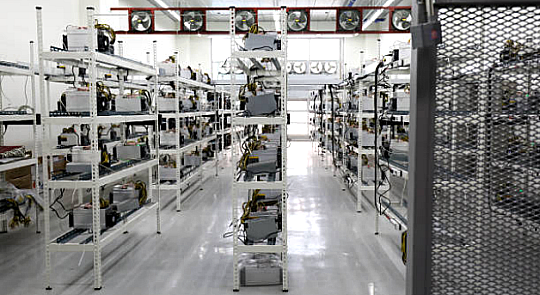Accredited InvestorsAltcoinAnatoli UnitskyAnti-Money Laundering (AML) In CryptoAPIArbitrageArtCoin TokenArticle DirectoryASICAuction Terminology GlossaryBasics of Stock Market InvestingBear MarketBest Crypto Payment Provider In the WorldBitcoinBlockchainBlockchain ConfirmationBlockchain Consensus MechanismBlockchain ForkBlockchain GlossaryBored Ape Yacht ClubBuild a Business That OutperformsBull MarketBuying SkyWay SharesByzantine Fault Tolerance (BFT) ExplainedCasascius CoinCentral Bank Digital Currency (CBDC)Centralized Crypto ExchangeCoinCoinsetCold WalletCollateralCommodity Futures Trading Commission (CFTC)Cross-Chain TechnologyCRUCrypto ExchangeCrypto GlossaryCrypto JokesCrypto Terms to KnowCrypto TickerCryptocurrencyCryptographyCryptojackingCryptounit BlockchainCryptounit GlossaryCryptounit ProgramdApp (Decentralized Application)Dead CoinDecentralized Exchange (DEX)Decentralized Finance (DeFi)Difference Between Bitcoin and EthereumDifferent Ways of Investing MoneyDigital CurrencyDistributed LedgerDo Your Own Research (DYOR)Dollar Cost Averaging (DCA)Dow Jones Industrial Average (DJIA)EncryptionERC-20ERC-721EthereumEvoScentFear Of Missing Out (FOMO)Fear, Uncertainty and Doubt (FUD)Fiat MoneyFNT Fintech CompanyGenesis BlockGlobal Unit PayGlossary of Banking TermsGlossary of Business TermsGlossary of Financial TermsHalvingHODLHot WalletHow Do I Start InvestingHow Rich is Satoshi Nakamoto?How to Create a BlockchainHow to Find Private InvestorsHow to Get Into FintechHow to Program Smart ContractsI Am Thrilled to Be a Part of This Global ProjectInitial Coin Offering (ICO)Initial Public Offering (IPO)Initial Token Offering (ITO)Innovation Basalt TechnologyInnovative Transportation TechnologiesInternational Bank Account Number (IBAN)Investing in Gold Mining StocksInvesting in Gold MiningJagerJoy of Missing Out (JOMO)Know Your Customer (KYC)LedgerLiquidity in CryptocurrencyMaker and Taker Fees in Crypto TradingMarket Capitalization (Market Cap)Meme CoinMetal Credit CardMetaMaskMillenials Now Have Access to Generational WealthMy Best Investment EverNew Digital EvolutionNFT GlossaryOff-Chain TransactionsOn-Chain TransactionsOpen Edition NFTPeer-to-Peer (P2P)Personal Loan GlossaryProbably the Best STO on the MarketProof of Stake (PoS)Real Estate Glossary of TermsReal Estate Investing GlossaryRebase TokenSecurities and Exchange Commission (SEC)Security Token ExchangesSecurity Token Offering (STO)Soulbound Decentralized Identities for Security TokensSoulbound ID Launch by Stobox Proves a SuccessSoulbound TokensStoboxStock Market GlossaryTestimonialsTether Platform and Token (USDT)UnitEx ExchangeUnitsky String TechnologiesUNTBUSDUValidatorWe Started Investing When We Were 25What are Blue Chip NFT?What are Blue Chip Stocks?What are Crypto Assets?What are Crypto Smart Contracts?What are CryptoPunks NFT?What are Digital Assets?What are Digital Collectibles?What are Gas Fees?What are Gas Wars?What are Hashmasks?What are Non Fungible Tokens?What are Non-Sufficient Funds (NSF)?What are Soulbound Tokens (SBT)?What are Stablecoins in Crypto?What are Transactions Per Second (TPS)?What are Utility NFTs?What are Utility Tokens?What Does Burning Crypto Mean?What Does Diamond Hands Mean?What Does Paper Hands Mean?What Does To The Moon Mean?What Does WAGMI Mean?What Happened to Satoshi Nakamoto?What is a 51% Attack?What is a Baby Boomer?What is a Backlink?What is a Banner?What is a Barcode?What is a Bid-Ask Spread in Crypto?What is a Block in Blockchain?What is a Block Reward?What is a Blockchain Address?What is a Blockchain Node?What is a Blockchain Oracle?What is a Blog?What is a Bond?What is a Bot?What is a Broker?What is a Business Accelerator?What is a Cash Cow?What is a Commercial Bank?What is a Commodity?What is a Con?What is a Credit?What is a Credit Limit?What is a Credit Rating?What is a Crypto Airdrop?What is a Crypto Bridge?What is a Crypto Scam?What is a Crypto Token?What is a Crypto Wallet?What is a Crypto Whale?What is a Crypto Winter?What is a Cryptocurrency Public Ledger?What is a Cryptocurrency Roadmap?What is a DAO?What is a Dark Pool?What is a Day Trader?What is a Dead Cat Bounce?What is a Default?What is a Derivative?What is a Digital Credit Card?What is a Fiscal Quarter?What is a Fungible Token?What is a Governance Token?What is a Grace Period?What is a Hard Fork?What is a Hot Wallet?What is a Hybrid Blockchain?What is a Hybrid PoW/PoS?What is a Joint Account?What is a Market Cap?What is a Merkle Tree in Blockchain?What is a Mining Farm?What is a Nonce? What is a PFP NFT?What is a POS System?What is a Prepaid Card?What is a Private Blockchain?What is a Private Key?What is a Public Blockchain?What is a Public Key?What is a Reserve Currency?What is a Ring Signature?What is a Routing Number?What is a Rug Pull in Crypto?What is a Safe Deposit Box?What is a Satoshi?What is a Security Token?What is a Seed Phrase?What is a Shitcoin?What is a Sidechain?What is a Soft Fork?What is a Spot Market?What is a State Bank?What is a SWIFT Code?What is a Tax Identification Number (TIN)?What is a Time Deposit?What is a Transaction Account?What is a Variable Interest Rate?What is a Virtual Assistant (VA)?What is a Virtual Card?What is a Virtual Currency?What is a Visa Card?What is a Whitelist in Crypto?What is a Whitepaper?What is Accounts Payable (AP)?What is AMA in Crypto?What is Amortization?What is an Accrual?What is an ACH Transfer?What is an Actuary?What is an Addendum?What is an Algorithm?What is an Angel Investor?What is an Annuity?What is an Asset?What is an ATM?What is an Atomic Swap?What is an Audit?What is an Avatar?What is an EIN?What is an Embargo?What is an Entrepreneur?What is an IDO (Initial Dex Offering)?What is an Interest Rate?What is an Internet cookie?What is an Investment Bank?What is an NFT Drop?What is an NFT Floor Price?What is an Ommer Block?What is an Orphan Block?What is an Outstanding Check?What is an Overdraft?What is Artificial Intelligence (AI)?What is B2B (Business-to-Business)?What is B2G (Business-to-Government)?What is Bartering?What is Bitcoin Dominance?What is Bitcoin Pizza Day?What is Blockchain Immutability?What is Blockchain Used For?What is BRICS?What is Business-to-Consumer (B2C)?What is C2C (Customer to Customer)?What is Capitalism?What is Catfishing?What is CFD Trading?What is Check Kiting?What is Cloud Mining?What is Communism?What is Content Marketing?What is Decentralization in Blockchain?What is DeFi in Crypto?What is Delisting?What is Depreciation?What is Digital Marketing?What is Diversification?What is Double Spending?What is Dumb Money?What is Dumping?What is Earnings Per Share (EPS)?What is Economics?What is Email Marketing?What is Equity?What is Etherscan?What is Fintech?What is Foreign currency?What is Forex?What is Fundamental Analysis (FA)?What is GameFi?What is Generative Art NFT?What is Gwei?What is Hard Currency?What is Hash Rate?What is Hashing in Blockchain?What is Inflation?What is Initial Game Offering (IGO)?What is Interest?What is Interest Income?What is Mainnet?What is Mastercard?What is Metaverse in Crypto?What is Mining in Cryptocurrency?What is Minting NFT?What is Mobile Banking?What is Money Laundering?What is NFT Alpha?What is NFT Metadata?What is NFT Rarity?What is NGMI Meaning?What is Nominal Interest Rate?What is Online Banking?What is Open-End Credit?What is OpenSea NFT Marketplace?What is Personal Identification Number (PIN)?What is Play-to-Earn?What is Polygon?What is Proof of Authority (PoA)?What is Proof of Work (PoW)?What is Public Key Cryptography?What is Pump and Dump?What is Quantum Computing?What is Refinancing?What is Retail Banking?What is Ripple?What is Sharding?What is Slippage in Crypto?What is Smart Money?What is Solvency?What is Soulbound ID?What is SSL?What is Staking in Cryptocurrency?What is Technical Analysis (TA)?What is Testnet?What is the Ask Price?What is the Better Business Bureau (BBB)?What is the Bid Price?What is the Dark Web?What is the InterPlanetary File System (IPFS)?What is the Gold Standard?What is the Lightning Network?What is the Prime Rate?What is the Sandbox?What is the Secondary Market?What is the World Bank?What is Tier 1 Capital?What is Tokenomics?What is TRC-20?What is Universal Banking?What is Unspent Transaction Output (UTXO)?What is Usury?What is Volatility in Crypto?What is Wash Trading?What is Web3?What is Whisper?What is XRP?What is Zero-Knowledge Proof (ZKP)?Who is Beeple?Who is Satoshi Nakamoto?Who is Vitalik Buterin?Why Tokenization is a Safe HavenWhy You Should Try Your Hand at Trading
What is Cloud Mining?
- Home
- Crypto Glossary
- What is Cloud Mining?
Cloud mining is a modern and innovative approach for individuals and businesses to "extract" cryptocurrencies without having to purchase costly equipment or maintain a physical mining setup.

With cloud mining services, users can rent the processing power of specialized mining equipment located in remote data centers anywhere in the world, eliminating the need for personal upkeep.
What is Cloud Mining?
Cloud mining is a method of earning cryptocurrency by leasing computing power from third-party providers. Similar to hosted mining, it offers a convenient way to start mining cryptocurrencies without having to establish and manage a physical mining setup, making it accessible for those without technical expertise. However, unlike hosted mining, the customer does not own the mining equipment.
The concept of outsourcing infrastructure to professional companies is not new and has been adopted by software businesses in recent years. Rather than maintaining their own servers, they have delegated these tasks to cloud computing/hosting specialists who are equipped to run the infrastructure 24/7.
When renting computing power from a cloud mining service, the customer usually pays a monthly fee for electricity and maintenance expenses to keep the ASIC mining rigs running at optimal capacity. This payment is typically outlined in a long-term contract. However, predicting the profitability of cloud mining can be challenging due to the volatile nature of cryptocurrency mining and market conditions that can change over time. Despite favorable terms at the time of signing the contract, the profitability may not remain constant.
Is Cloud Mining Profitable?
The profitability of cloud mining depends on the specific provider and the current state of mining profitability. Attaining consistent profits can be challenging as mining is a highly competitive industry where operators aim to pay the lowest possible energy costs. When a cloud mining company adds additional fees to the energy cost, it becomes more difficult to compete with miners who only pay for electricity.
Some cloud mining services may offer advanced features that claim to increase profitability, such as the ability to switch between coins based on profitability or simultaneously mining multiple coins. However, it is advisable to exercise caution when mining anything other than Bitcoin as many cryptocurrencies have low trading volume and high price volatility, leading to quickly evaporating profitability which can be costly in a long-term contract.
Advantages of Cloud Mining
Two major benefits of cloud mining are the reduction in overall mining costs and increased accessibility for investors who may not have the necessary financial means or technical knowledge. Furthermore, cloud mining provides users with the ability to mine multiple cryptocurrencies through a single service, thereby reducing the risks associated with investing in individual cryptocurrencies.
Disadvantages of Cloud Mining
The primary disadvantage of cloud mining is that it involves entrusting a third party to mine cryptocurrencies without verifying their actual mining capabilities. This opens the door to potential fraud by unscrupulous companies that claim to be mining on behalf of their customers but are actually only collecting their money.
Additionally, cloud mining centralizes the mining process to a select few mining farms, and profitability is dependent on demand, further contributing to the disadvantages of this method. It is important to exercise caution and thoroughly research any cloud mining service before investing in it.
Cloud Mining vs Hosted Mining
The core difference between cloud mining and hosted mining lies in the ownership of the mining equipment. In hosted mining, the customer holds possession of the ASICs and can have them physically retrieved in case of any issues at the hosting site.
This advantage enables the hosted mining company to split the cost of acquiring miners with their clients, thereby reducing the financial burden on the business and increasing its stability. The only requirement for the business is to secure enough space to operate the ASICs, ensuring a high level of uptime as agreed in the contract.
Given the profitability of modern ASICs, hosted mining provides a long-term investment opportunity for clients partnered with a reliable and stable business.
The main disadvantage of hosted mining for the customer is the higher initial cost of purchasing the mining rigs. However, this also brings peace of mind as the client knows that a physical machine is actively mining on their behalf. Additionally, the client's ownership of the equipment provides leverage in case their partner fails to pay out the mined cryptocurrency.
Related Articles

What is Mining in Cryptocurrency?
Mining comprises massive, decentralized networks of computers all around the world verifying and securing blockchains. Computers on the network are rewarded with new coins in exchange for...

What is a Mining Farm?
One of the main benefits of a mining farm is the pooling of resources. Instead of one person trying to solve the problem on their own, multiple computers working together can significantly increase the chances of finding a...

ASIC
In certain cases, simple computer activities may not necessitate the financial and computational overhead that a general-purpose CPU would bring to the table. An ASIC, on the other hand, is a considerably simpler and more...
- Home
- Crypto Glossary
- What is Cloud Mining?